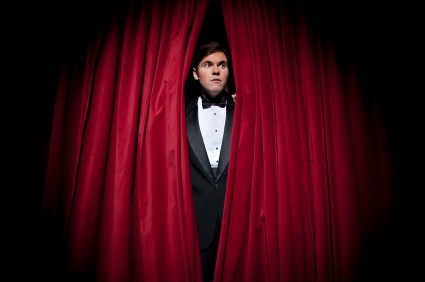Performance Anxiety
All of us at some point in time in our lives experience Performance Anxiety. Whether it’s speaking in front of a classroom full of your peers or standing behind the starting blocks waiting for the race to start, Anxiety is what keeps us on our toes, that feeling of excitement mixed with a little bit of fear and dread. Performance Anxiety can make you feel nervous, panic stricken and can impact your performance negatively. How we deal with our Performance Anxiety is what makes the difference between being a Championship Performer and someone just “getting by” in life.
Being an Athlete myself, I know first-hand the effects that “Anxiety” had on my performances. When I first started to compete in Swim Meets, standing behind the starting blocks, I was overcome with feelings of dread and panic. At that very moment I let myself get distracted by negative thoughts and feelings. I had two choices to make, dive in the water and swim or step down and face even greater embarrassment that I had already perceived as an outcome. I never ever did step down and I competed in all of my races, however, my performances were not great. What I learned was that while anxiety and stress are normal and part of who I am, I could no longer let these feelings get out of control and affect me in such a way to be a detriment to my performance. In the end, my swims were just okay not because I was ill-prepared, but rather because I hadn’t yet learned how to use my anxiety in a positive way. I was able to use this experience and apply it to my performances on the track and use the anxiety to benefit my races and use it to fuel me rather than deter me.

Knowing you are also not alone and you can lean on someone like a coach or friend are also positive steps to overcoming performance anxiety and negative thoughts.
Successful competitors such as Usain Bolt and Andre De Grasse – both came to the Olympics with extreme focus and a whole lot of self- confidence. But how do they achieve this? Self-Confidence comes from many different sources, mainly how you feel about yourself and your abilities. But being confident in your performance comes from the effort level, training and hard work you put in at practice. By putting forth the effort level required, paying attention to the small details that affect your performance and making the necessary adjustments, always seeking self-improvement and being driven for success are how you get prepared. It’s really not a big secret. If you don’t practice well, you won’t perform well and you will have nothing to be confident about and when that happens you’ll be anxious about your performance.
So stop the self-defeating behaviors such as inadequate warm ups, poor effort level, inattentive engagement and embrace those qualities that make Champion Performers.
Being self-confident and prepared are keys to success in overcoming Performance Anxiety. Other essentials elements that will also help are eating well, visualizing for success, using positive reinforcements and performing calming breathing techniques to remain focused.
In the end, you need to relax and trust in your training. Be happy and confident in your abilities. The possibilities are endless once you can achieve this.

